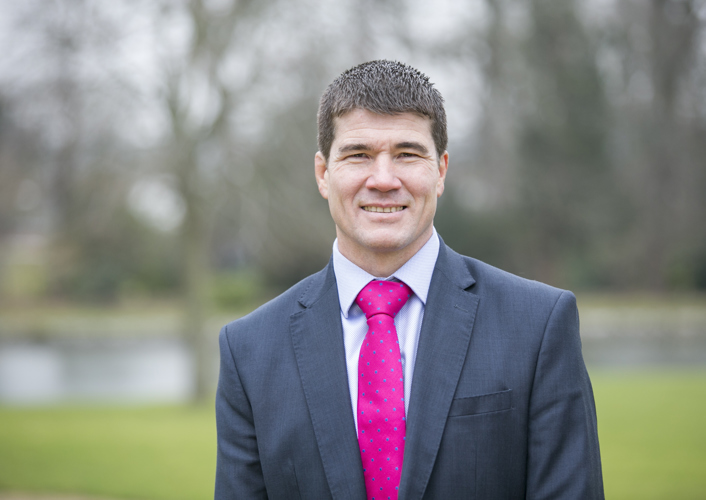Broadening access to bursaries and outreach to transform the lives of children in care

Peter Goodyer, headmaster of Bede's, explains how the school is providing life-changing opportunities for care-experienced children, with support from its local authority and the charity Royal SpringBoard.
COVID has given us all as school leaders cause to reflect on whether we are really doing enough to ensure our schools are playing their part in supporting those who most need the educational opportunities where we can.
For nearly 10 years now we at Bede’s have been working closely alongside our local authority – East Sussex – to see how we can best support their tireless efforts to close the enormous gaps faced by children in care. I am really proud that we have been able to fund fifteen Looked After Children (LAC) to attend Bede’s on fully funded bursaries, and to invite other care-experienced children to benefit from our co-curricular programmes across the arts, sciences, sport and drama.
Our boarding bursaries for looked-after children programme has only been made possible through our partnership with the Local Authority supported by the Royal National Children’s SpringBoard Foundation (‘Royal SpringBoard’). This is why I am so delighted that DfE Minister Vicky Ford will announce, today, the award of a significant government contract to support their work and ensure that they can expand their programmes to widen access to bursaries for vulnerable children at independent day schools, as well as their existing boarding network.
It is hugely significant that the DfE are recognising, in this contract, the important role that the sector can play in the educational landscape for looked-after children. And how much more significant a role this could be if individual independent schools’ efforts can be harnessed to increase the number of bursary places and extend and better target outreach activities for those for whom bursaries are not possible.
Children in care are the most vulnerable children in our society and it is well documented that they are the children whose educational outcomes are the lowest. It has been incredible to watch those care-experienced children who attend Bede’s as boarders or on our outreach programmes embracing the opportunities we have on offer. It is palpable how our bursary pupils respond to the environment of high expectations, the strong ethos of personal and social development, and the pastoral support systems that provide role models and attachments that help to build pupils’ self-esteem and trust. That commitment to doing all we can to bring out the best in all our young people, which is in stark contrast to the experience of many teenage children within the care system, has seen some incredibly proud moments for us all. Nine of LAC pupils have gained three A-levels (or equivalent) and gone on to first choice universities. The other six are studying for GCSEs and A-levels. I cannot wait to get to know the three new care-experienced pupils hoping to start as SpringBoarders at Bede’s in September this year.
There is much that we have learnt about how to ensure care-experienced children thrive in our independent educational setting. At its heart, our holistic education, broad academic curriculum and unstinting focus on pastoral care are attributes that I know are available in many schools across the independent sector and can, quite literally, help to transform lives.
The lessons in terms of how to develop a pastoral system that brings out the best in care-experienced children; working in partnerships with all the significant adults involved in a LAC’s life; deep understanding of the attachment and trauma issues that might sit behind behaviours that these pupils experience and awareness of how to adapt and support pupils when issues arise, have all been taken on board by Royal SpringBoard as they help to advise other schools hoping to broaden access to their bursaries for more LACs. I would really encourage any colleagues who have not already explored a partnership with Royal SpringBoard to do so. With the award of this contract their capacity to help broker more partnerships across many Local Authority areas has grown, but it is a time-limited opportunity that we need to all work to actively make the most of.
Our work with East Sussex Local Authority is not limited to offering boarding places. We know that positive learning experiences for those LACs unable to secure a bursary place can also help to make an enormous difference: whether through offering foster carers the opportunities to bring their children along for fun activities like animal management in our Bede’s Zoo, ceramics, photography and Sports Days, or extending our drama workshops to take place in children’s homes or supporting school refusers to help build confidence and self-esteem through working with animals, there is a lot more that can be done beyond bursaries. Ideas such as our annual East Sussex Children in Care Awards for over fifty children and their carers, with a meal and awards ceremony, that celebrate individual educational achievements, have realised immeasurable gains in some children’s self-confidence and self-esteem. The announcement today, which covers both a recognition of the value of bursaries as well as outreach efforts, provides welcome reminder of what a difference we can make.
Independent schools and local authorities can – and do – work together successfully to transform the life chances of children in care. I am confident that together we can make a genuine change to the individual lives of these young people, and I strongly believe that we are able to make our schools the greenhouses in which they receive the care and encouragement that will enable them to flourish.
